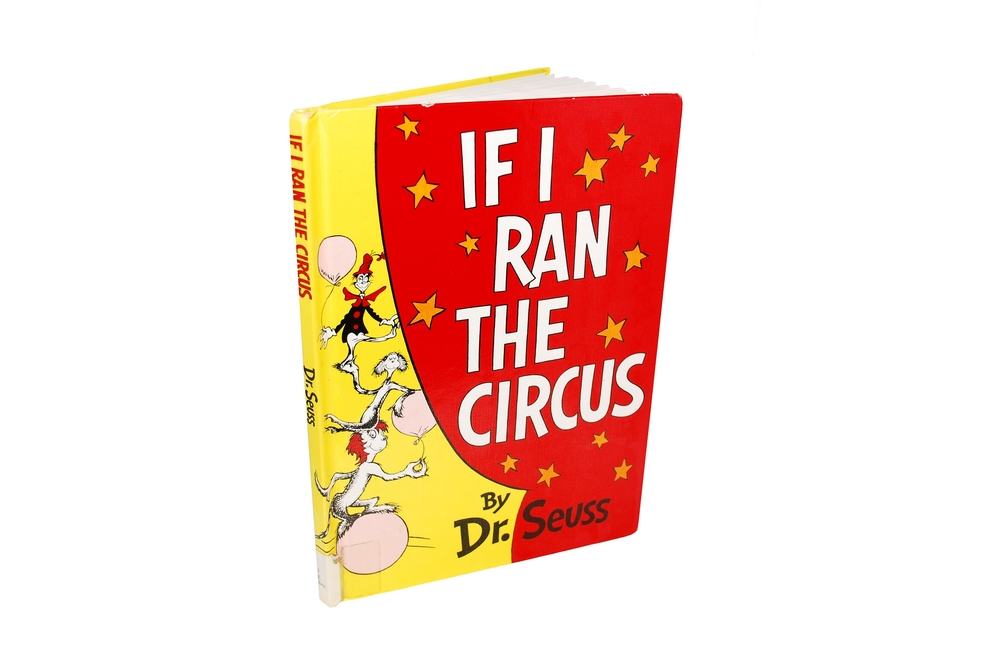Six Dr. Seuss books will stop being published because of racist and insensitive imagery, the business that preserves and protects the author’s legacy said Tuesday. Titles like “And to Think That I Saw It on Mulberry Street” and “If I Ran the Zoo” will no longer be produced following months of internal deliberation at Dr. Seuss Enterprises and meetings with outside groups.
“These books portray people in ways that are hurtful and wrong,” a statement released to coincide with Dr. Seuss’s birthday reads.
Dr. Seuss Enterprises, the company that oversees the late illustrator and author’s legacy, will discontinue the publishing of six of their books.
“Ceasing sales of these books is only part of our commitment and our broader plan to ensure Dr. Seuss Enterprises’ catalog represents and supports all communities and families,” the company said.
Other books affected include “McElligot’s Pool,” “On Beyond Zebra!,” “Scrambled Eggs Super!,” and “The Cat’s Quizzer.”

“Dr. Seuss Enterprises listened and took feedback from our audiences including teachers, academics, and specialists in the field as part of our review process. We then worked with a panel of experts, including educators, to review our catalog of titles,” the company explained to the AP.
In “And to Think That I Saw It on Mulberry Street,” an Asian person is portrayed with a cone-shaped hat, clinging to chopsticks, and eating from a bowl. “If I Ran the Zoo” includes a drawing of two bare-footed African men wearing what appear to be grass skirts with their hair tied above their heads.
Dr. Seuss was the pen name of Theodor Seuss Geisel who was born in Massachusetts in 1904. The author and illustrator completed over 60 children’s books. His works have been translated into dozens of languages as well as in braille and are sold in more than 100 countries. He died in 1991.
Within hours of Tuesday’s announcement, Dr. Seuss’s books filled more than half of the top 20 slots on Amazon.com’s bestseller list. As of Wednesday, 21 of the top 25 books on that same list were all works by Dr. Seuss. “Mulberry Street” and “If I Ran the Zoo” were on the list, along with “Oh, the Places You’ll Go!”, “Green Eggs and Ham” and others still being published.
RELATED: 25 Delightful Dr. Seuss Tattoos That Bring the Nostalgia
Random House Children Books, Dr. Seuss’ publisher, issued a short statement Tuesday: “We respect the decision of Dr. Seuss Enterprises (DSE) and the work of the panel that reviewed this content last year, and their recommendation.”
Over the years, educators and others have pointed out that the depictions of certain minority groups in the books are problematic.
The National Education Association, which founded Read Across America Day in 1998 and intentionally aligned it with Geisel’s birthday, has for years deemphasized Seuss and encouraged a more diverse reading list for children.
For the country’s libraries, what to do with the Seuss books being withdrawn continues a longstanding conflict between the values of free expression and acknowledging that some content may be hurtful. Libraries rarely pull a book even when some find it racist or otherwise offensive, says Deborah Caldwell Stone, who heads the American Library Association’s Office for Intellectual Freedom. They are more likely to place it in a less prominent location or otherwise choose not to promote it.
The books we share with our children matter. Books shape their world view and tell them how to relate to the people, places, and ideas around them. As grown-ups, we have to examine the worldview we are creating for our children, including carefully re-examining our favorites. https://t.co/z9YVLY3ayC
— Dr Rebekah Fitzsimmons (@DrFitzPhD) March 2, 2021
The move to cease publication of the books drew immediate reaction on social media from those who called it another example of “cancel culture.” While others approved of the decision.
“The books we share with our children matter. Books shape their world view and tell them how to relate to the people, places, and ideas around them. As grown-ups, we have to examine the worldview we are creating for our children, including carefully re-examining our favorites,” Rebekah Fitzsimmons, an assistant teaching professor at Carnegie Mellon University, tweeted.
YOU MIGHT ALSO LIKE: Kristen Bell On Raising Her Daughters As Anti-Racists: ‘You Can Put It on My Gravestone’
At the end of the day, no matter where you stand on the matter, Dr. Seuss’s books are published by private entities. They made a decision. You can either choose to support them following their decision to not show racist imagery in their books. Or, you can disagree and not buy them any longer. It’s a free market. That’s how it works.